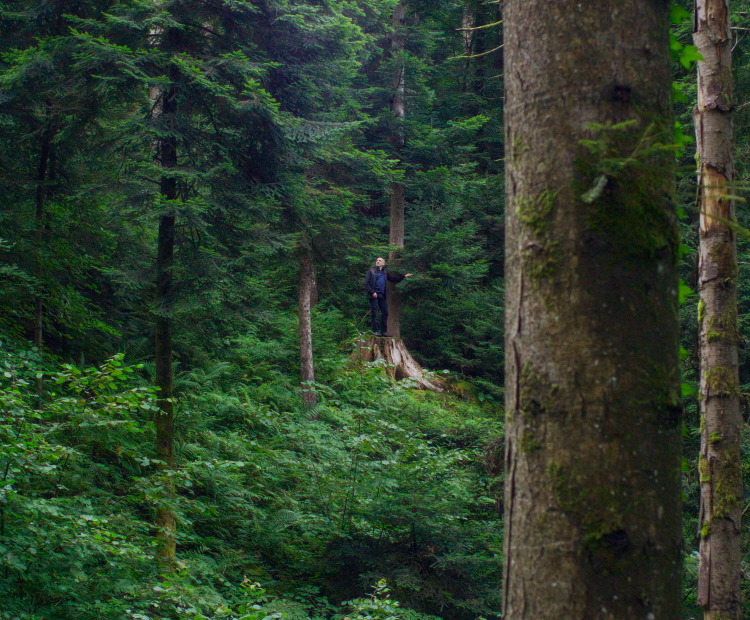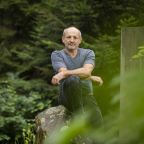The lifelong forester Jürgen-Thomas Ernst has spent decades delving deep into the secrets of our local forests. He’s also known as a writer on his specialist subject: in ‘Secrets of the Forest’, he takes readers on a journey into the local plant world and its amazing abilities. His most recent book, ‘The Forest in Times of Change’, traces the signs of climate change in our forests while taking a hopeful look to the future. What’s more, you can now join an informative tour of some of the forests he used to oversee.
As a former forest warden, Ernst is a true voice of authority on the subject. Indeed, a forest warden registers any changes in the forest - marking trees to be felled, settling disputes on matters such as boundary markings, and reporting disease outbreaks such as bark beetle infestations. Wardens can quickly recognise when trees are showing signs of stress - a healthy tree protects itself effectively with resin against beetle attacks. But in the event of prolonged drought, a tree’s immune defences are weakened and bark beetles can spread.
“These are all regulatory forces, even if we don't like it,” says Ernst. “Once the drought is over, new trees emerge that can cope better with the changed conditions.” Ernst continues by saying that forests are in fact very stable, and he has a compelling argument for this: "You have to realise that trees are more evolved than humans. I think we seriously underestimate them. They have survived all crises over millions of years, all the weather extremes and climate changes that have already occurred on Earth - so they have abilities that we are not even aware of."
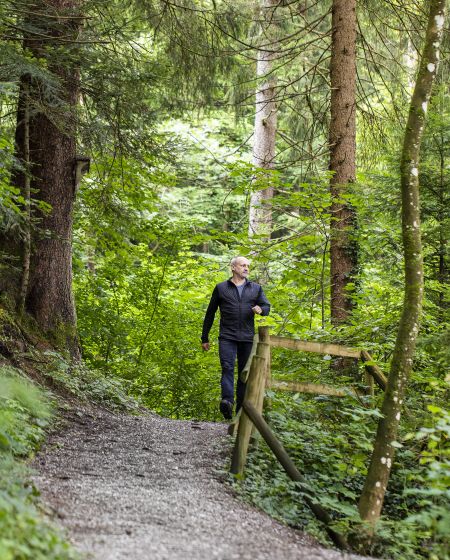
 Petra Rainer
Petra Rainer
 Petra Rainer
Petra Rainer
 Petra Rainer
Petra RainerAuthor and forestry educator
As a writer, Jürgen-Thomas Ernst has long since made a name for himself, composing plays, novels, thrillers and, most recently, non-fiction books about forests. In 2019, he received the Vorarlberg Schutzwaldpreis Award for his forest education projects, and in 2020 a similar international accolade. Since leaving his long-term job with the state government's forestry department he now works as a freelance forestry educator. In this time, not only has his writing productivity increased, he also has a fully booked calendar for forest tours for children and adults. These tours take place in Wolfurt and Gaißau, in forests he once looked after. “If I had realised that the demand would be so great, I would have taken this step earlier,” he jokes, noting the luxury of having more free time to dedicate to writing. Thankfully, Ernst is equally as fond of sharing the forest’s secrets as he is spending time amongst the trees.
“Secrets of the Forest is about which remedies grow in the forest and how to recognise them - which plants are edible, which are not. It is the most successful of my books; I see a great need for this knowledge. We can't protect what we can't see, so it's important to me that more people realise the true value of our forests.”
For his new book, the author wanted to photograph an old juniper tree he saw at an unusual altitude. But when he returned to the spot after a long absence, the tree had been uprooted. He attributes this to the ignorance of workers tasked with clearing the land. “A juniper tree grows very slowly and is therefore quite rare. There is no reason to remove it - something like that definitely hurts me,” he reports.
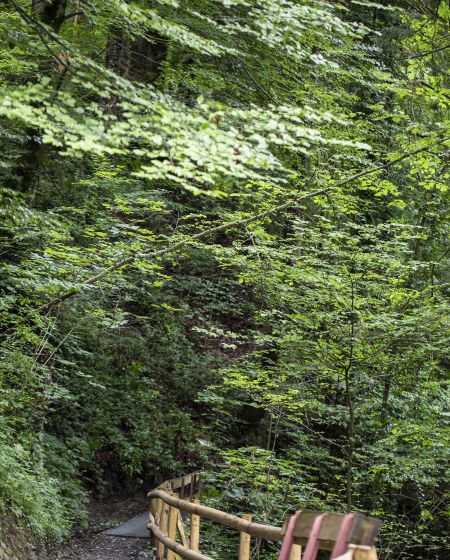
 Petra Rainer
Petra Rainer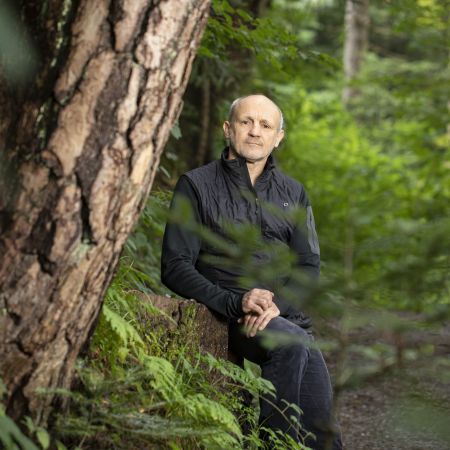
 Petra Rainer
Petra RainerForests don't need any help from us
Raising awareness of trees and plants that keep our climate as stable as possible is an essential contribution to our future. As long as you know what to look out for, it seems obvious that forests can adapt to changes. Nevertheless, Ernst doesn't think much of the fact that experts are now talking about making our native forests climate-ready: “Forests don’t need any help from us, they’re extremely intelligent systems - I would even say they’re flawless. Whenever humans interfere, a forest repairs the mistakes. But forests are slower than humans who are constantly coming up with new ideas. There is nowadays talk of the Douglas fir, a tree native to North America that can withstand warmer temperatures, but it does not belong in Austria. Our insect diversity can't do anything with it, and we are making the latest mistake by incorporating this tree. Any monoculture is unnatural; spruce forests will not cope well with higher temperatures. But the problem is that they were planted like this in the first place and there are hardly any mixed forests left. I am convinced that we’re focussing on the wrong things. Most of all, we have an environmental problem and we urgently need to stop damaging our soils. Further major problems are overexploitation and overpopulation. We could probably feed ten billion people, but that would require a paradigm shift. In my book, I felt it important to explain these connections - we need to look at climate change in a more objective way again and solve the real problems. We should be able to discuss these issues less emotionally.”
His view of nature and its regenerative capacity is imbued with hope, and he still sees plenty of room for mankind to do the right things. There is, above all, still a great need for tree planting. But zooming out, we also need to rediscover the benefits of a less wasteful lifestyle, believes Ernst. If we cultivate a culture of deceleration, then a different way of life can also become attractive.
“We owe our children and grandchildren the assurance that we can rethink,” he says. With his educational work and his literature legacy, he is certainly playing his part. His forest tours are therefore highly recommended, even if it may involve a wait. After all, forests move at a tree’s pace.
Jürgen-Thomas Ernst's non-fiction books are published by Verlag Braumüller.
Forest tours can be booked at www.waldpädagogik.at

